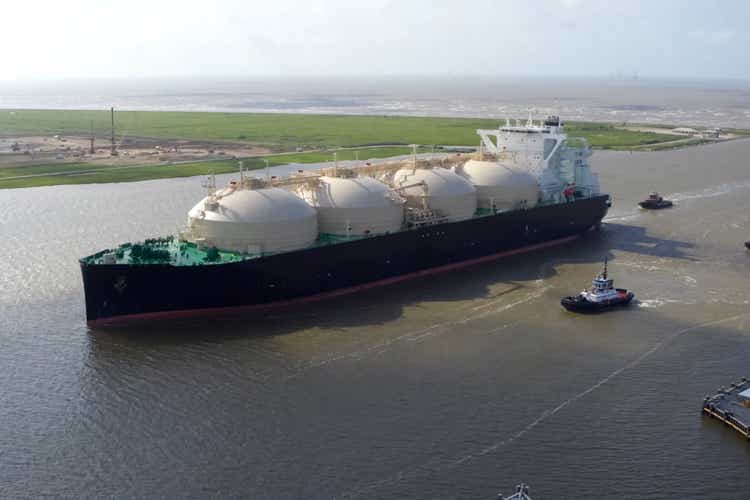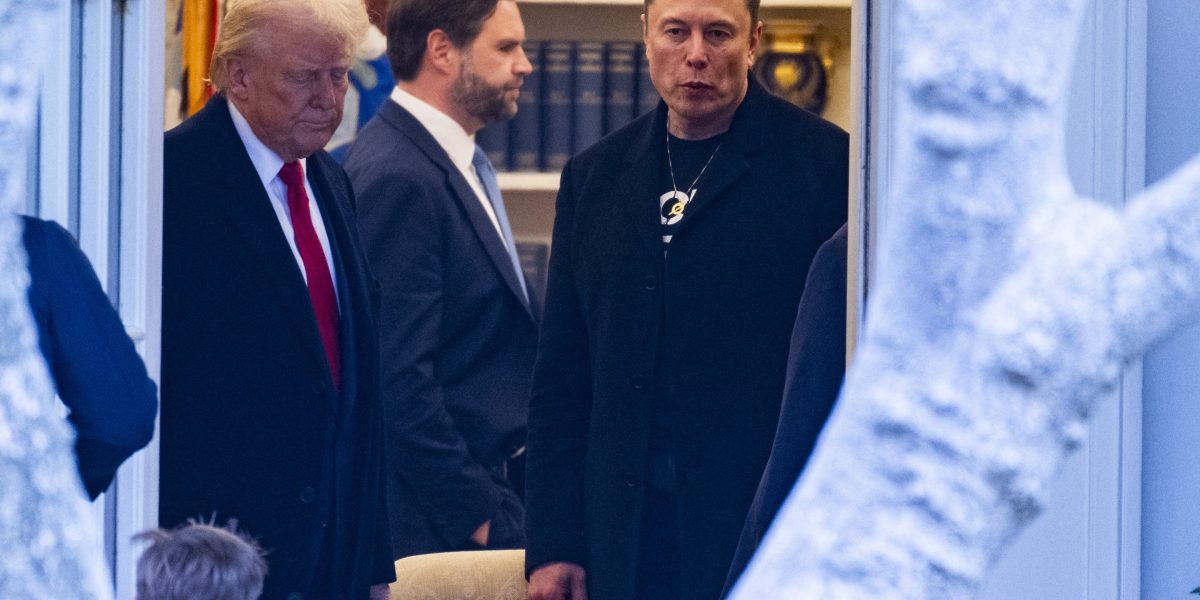LNG Giants Clash with Trump Sanctions: Navigating Impossible Shipping Restrictions
Companies
2025-04-28 22:49:00Content

The liquefied natural gas (LNG) industry is sounding the alarm over potential new regulations that could significantly disrupt its global shipping operations. Industry leaders are pushing back against proposed rules that would mandate the use of U.S.-built transport vessels, warning that such requirements could create substantial logistical and financial challenges.
The proposed regulations, which would impose tariffs on Chinese-built ships entering U.S. ports, have sparked intense debate within the maritime and energy sectors. LNG executives argue that the current global shipping infrastructure simply cannot be rapidly transformed to meet these stringent new requirements.
The industry contends that forcing an immediate shift to U.S.-built vessels would create unprecedented supply chain complications and potentially drive up energy costs for consumers. With complex international shipping networks already in place, such a sudden mandate could create significant economic disruption.
While the proposal aims to boost domestic shipbuilding and protect U.S. maritime interests, industry representatives are urging policymakers to consider the broader economic implications and practical challenges of implementing such sweeping changes.
As negotiations continue, the LNG industry remains committed to finding a balanced approach that supports both national economic interests and the efficient global energy trade.
LNG Industry Faces Regulatory Crossroads: Navigating Trump's Maritime Mandate
In the complex landscape of global energy trade, the Liquefied Natural Gas (LNG) sector finds itself at a critical juncture, confronting unprecedented regulatory challenges that could fundamentally reshape maritime transportation and international shipping protocols.Transformative Policies Threaten Industry Operational Dynamics
Geopolitical Tensions in Maritime Transportation
The emerging regulatory framework proposed by the Trump administration represents a significant inflection point for the LNG industry, challenging established international shipping practices. These proposed regulations aim to mandate the exclusive use of U.S.-constructed vessels, potentially disrupting long-standing global maritime supply chains and creating substantial economic complications for energy transportation networks. Multinational energy corporations are grappling with the potential ramifications of these stringent requirements, which could dramatically increase operational costs and introduce unprecedented logistical complexities. The proposed tariffs targeting Chinese-built ships docking at U.S. ports represent a strategic maneuver with far-reaching implications for international maritime commerce.Economic and Infrastructural Implications
The proposed regulatory landscape threatens to create substantial economic friction within the global LNG transportation ecosystem. Existing maritime infrastructure, predominantly reliant on international shipbuilding capabilities, would require extensive reconfiguration to comply with emerging U.S. governmental mandates. Industry experts argue that the sudden implementation of such restrictive policies could potentially undermine the competitive advantages that have historically characterized the global LNG market. The requirement to exclusively utilize U.S.-constructed vessels would necessitate significant capital investments and potentially disrupt established supply chain mechanisms.Technological and Operational Challenges
The LNG industry confronts multifaceted challenges in adapting to these proposed regulatory frameworks. U.S. shipbuilding capacity may not immediately accommodate the extensive demand generated by such mandates, creating potential bottlenecks in maritime transportation infrastructure. Technological considerations extend beyond mere vessel construction, encompassing complex maritime engineering requirements, safety protocols, and international regulatory compliance mechanisms. The proposed regulations could potentially trigger a comprehensive reevaluation of existing maritime transportation strategies within the global energy sector.International Diplomatic and Trade Considerations
These proposed regulations transcend mere maritime transportation policies, representing a broader geopolitical strategy with significant diplomatic implications. The potential implementation of tariffs and restrictive shipping protocols could strain international trade relationships and provoke retaliatory measures from global trading partners. The intricate balance between protectionist maritime policies and maintaining robust international energy trade networks requires nuanced diplomatic negotiations and strategic economic planning. Stakeholders across governmental and corporate domains must carefully navigate these complex regulatory landscapes.Future Outlook and Industry Adaptation
The LNG industry stands at a critical evolutionary moment, confronting unprecedented regulatory challenges that demand innovative strategic responses. Successful navigation of these complex policy environments will require sophisticated technological capabilities, flexible operational frameworks, and proactive diplomatic engagement. Corporations must develop comprehensive adaptation strategies that balance regulatory compliance with maintaining competitive market positioning. This may involve significant investments in domestic shipbuilding infrastructure, technological innovation, and strategic international partnerships.RELATED NEWS
Companies

Behind the Buyout: What You Need to Know About the Company Transforming Muskegon's Manufacturing Landscape
2025-04-16 15:49:27
Companies

Legal Showdown: Jersey City High-Rise Sparks Explosive Lawsuit by State Officials
2025-04-21 17:18:48






